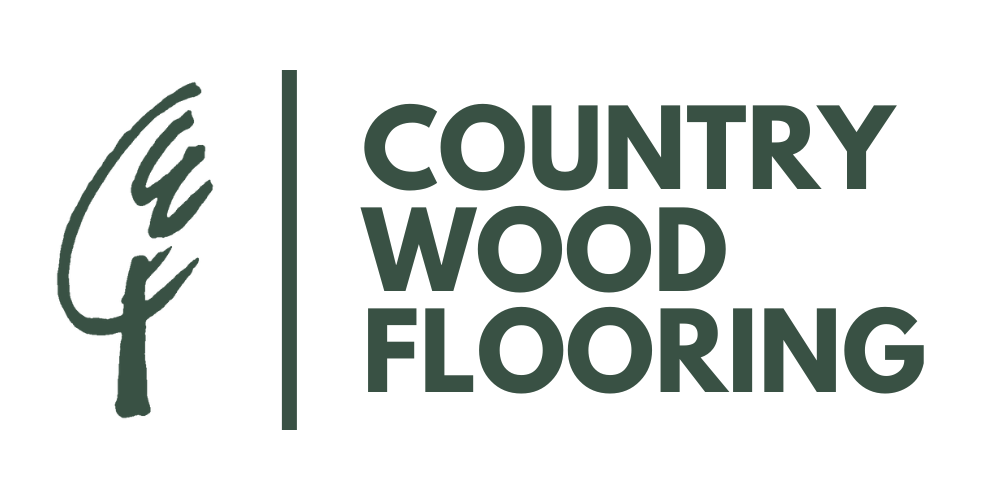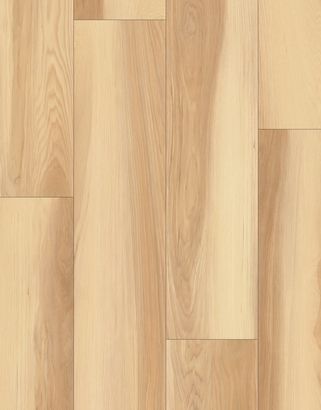Vinyl Flooring
Vinyl flooring is a synthetic flooring option composed primarily of polyvinyl chloride (PVC) and other materials designed to deliver a realistic aesthetic that mimics natural elements such as wood, stone, or ceramic tile. This multi-layer construction typically includes a robust wear layer, a printed design layer, a resilient core layer, and a backing layer, which together provide durability, comfort, and elegance. This makes vinyl a pragmatic choice for residential and commercial applications alike, delivering the refined appearance of high-end materials without the associated costs.
Benefits of Vinyl Flooring
The advantages of vinyl flooring extend far beyond its visual appeal:
- Economic Affordability: Vinyl flooring is generally more cost-effective than traditional materials like hardwood or tile, making it accessible for renovations or new builds without compromising on style or quality.
- Moisture Resistance: Vinyl’s inherent water-resistant properties make it an ideal option for moisture-prone areas, such as bathrooms and kitchens, guarding against potential water damage and ensuring long-term durability.
- Resilience and Durability: Engineered to withstand the rigors of daily use, vinyl flooring is resistant to scratches, dents, and stains, providing an integrity that is advantageous for high-traffic environments.
- Ease of Installation and Maintenance: Vinyl flooring typically allows for straightforward installation methods, including DIY options. Its maintenance is equally uncomplicated, requiring minimal effort to keep it looking pristine.
Types of Vinyl Flooring
As you explore your flooring options, you will encounter various types of vinyl, each designed to cater to different functional and aesthetic preferences:
- Luxury Vinyl Plank (LVP): Designed to emulate the natural beauty of hardwood floors, LVP combines advanced technology and design for a realistic appearance and texture, perfect for both contemporary and traditional spaces.
- Luxury Vinyl Tile (LVT): Resembling natural stone or ceramic, LVT offers elegance and sophistication, suitable for high-end residential and commercial environments.
- Engineered Vinyl Plank (EVP): A step beyond LVP, EVP features a more robust construction, often incorporating a rigid core that provides enhanced stability and durability. This type is particularly well-suited for environments subject to temperature fluctuations or moisture, making it ideal for basements or areas with radiant heated floors. EVP combines the aesthetic appeal of luxury vinyl with additional strength and versatility.
- Vinyl Sheet Flooring: Available as large continuous sheets, this option minimizes seams and is particularly effective in moisture-prone areas, providing an inherent barrier against water damage.
- Interlocking Vinyl Tiles: These tiles allow for hassle-free installation, easily snapping together to create visually appealing patterns that offer versatility in design.
Installation Methods for Vinyl Flooring
The method of installation can significantly impact the overall performance of vinyl flooring. Common approaches include:
- Glue-Down Installation: A conventional method that involves adhering vinyl to the subfloor with a specialized adhesive. This approach is ideal for areas that require a sturdy, permanent solution.
- Floating Installation: Often employed with LVP and LVT, floating installations enable planks to rest on the subfloor without being adhered, allowing for natural expansion and contraction. It also facilitates faster and often DIY-friendly installation.
- Sheet Installation: For vinyl sheet flooring, large rolls must be carefully cut and laid out to fit seamlessly. Precision is essential to ensure optimal aesthetics and functionality.
Selecting the appropriate installation method aligns with both the product choice and the specific conditions of the installation site, ensuring the longest-lasting results.
Maintaining Your Vinyl Flooring
Principled maintenance is essential for preserving the beauty and life of vinyl flooring:
- Regular Cleaning: Routine sweeping and vacuuming will eliminate dirt and debris, which, if left unattended, can scratch the surface. A damp mop with pH-neutral cleaners will keep your floors looking their best.
- Avoiding Harsh Chemicals: It is prudent to utilize cleaner formulations recommended by manufacturers. Strong chemicals can deteriorate the protective wear layer, diminishing the flooring's performance.
- Wear Management: In high-traffic areas, using mats or runners can mitigate wear and prolong the life of your flooring, especially in entryways and kitchens.
Vinyl Flooring Trends in 2025
As we look toward the future, the evolution of vinyl flooring continues, with several trends anticipated to dominate the market:
- Sustainability Initiatives: There is a growing emphasis on eco-friendly manufacturing practices and materials, catering to environmentally conscious homeowners and businesses.
- Textured Finishes: Expect to see an increased variety of textured surfaces designed to enhance realism and appeal. These textures not only provide visual interest but also elevate the tactile experience.
- Bold and Diverse Patterns: As individual expression becomes a focal point in design, innovative patterns and vibrant colors are likely to gain traction, offering homeowners the ability to create unique interior narratives.
Evaluating the Cost of Vinyl Flooring
Cost considerations are critical when planning any flooring project. Vinyl flooring generally ranges from $2 to $7 per square foot based on the quality and type selected. Installation costs may further influence the overall budget, particularly if professional services are employed. However, when evaluating the durability, aesthetic variety, and low-maintenance nature of vinyl flooring, it frequently proves to be an economical choice in the long term.
Vinyl vs. Other Flooring Types
To further guide your decision-making, it is beneficial to compare vinyl flooring with other popular options:
- Vinyl vs. Hardwood: While hardwood offers timeless sophistication, it is significantly more costly and subject to environmental factors such as humidity. Vinyl, on the other hand, provides an approachable price point with enhanced functionality in moisture-prone areas.
- Vinyl vs. Tile: Though tile is lauded for its durability and water resistance, it can sometimes be stark and cold. Vinyl offers warmth and comfort while retaining style, making it more suitable for residential settings.
- Vinyl vs. Carpet: Carpet can add an inviting ambiance; however, it typically requires more maintenance to keep it allergen-free. Vinyl provides a hypoallergenic alternative that is easier to clean and maintain.
The ultimate choice depends on a careful assessment of your specific requirements and aesthetic desires.
Frequently Asked Questions
Is vinyl flooring completely waterproof?
While vinyl is predominantly water-resistant, certain products, including luxury vinyl options, offer enhanced moisture protection. However, it is still advisable to promptly clean up spills to ensure longevity.
Can I install vinyl flooring over existing flooring?
Yes, provided the existing surface is clean, dry, and level, many vinyl products can be installed directly over previous flooring.
How can I address scratches on vinyl flooring?
Minor scratches may often be smoothed out with a soft cloth, while deeper scratches might require the use of a specialized repair kit formulated for vinyl materials.
What is the lifespan of vinyl flooring?
With proper maintenance, vinyl flooring can endure between 10 to 20 years, making it a worthwhile investment for homeowners.
Is vinyl flooring pet-friendly?
Yes, vinyl flooring is an excellent choice for pet owners. Its scratch-resistant surface and ease of cleaning help minimize the impact of pet activity within the home.



